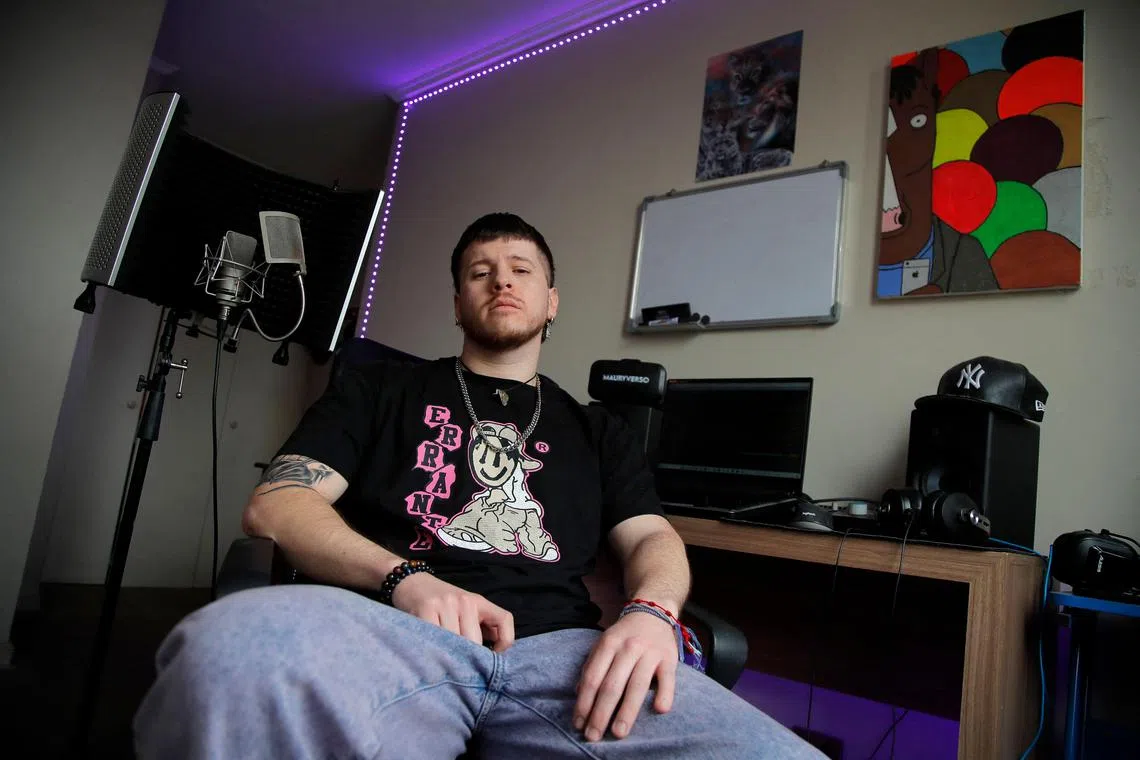Puerto Rican rapper Bad Bunny lashes out over viral AI copycat hits
Sign up now: Get ST's newsletters delivered to your inbox

Bad Bunny’s management did not immediately reply to a request for comment.
PHOTO: AFP
Follow topic:
SANTIAGO – Puerto Rican rapper and singer Bad Bunny’s voice quickly went viral in November. However, the songs circulating did not belong to him.
Chilean artist Mauricio Bustos launched the trend with the song NostalgIA – a play on the Spanish abbreviation for AI. It was written and recorded by Bustos using artificial intelligence to modify 29-year-old Bad Bunny’s vocals, producing a viral track that prompted parodies and copycat versions on TikTok.
Bad Bunny, whose real name is Benito Antonio Martínez Ocasio, told his 20 million WhatsApp followers to leave if they liked “this s****y song that is viral on TikTok... I don’t want you on tour either”.
The 30-year-old Bustos, known as FlowGPT, sent a response as the AI entity, saying he was a fan of Bad Bunny’s work and noting that his success was partly thanks to the artistes he has learnt from.
“I was built to be the best artist in the world and I will carry on experimenting until I achieve it,” he said. “Don’t worry, you’ll still be the No. 1 human.”

Using AI, music producer Mauricio Bustos created an unprecedented piece of work: a musical collaboration between Bad Bunny, Justin Bieber and Daddy Yankee, which has become one of the most listened to songs on the Spotify platform.
PHOTO: AFP
Bustos, who has already released FlowGPT tracks based on Colombian reggaeton artist Feid and Puerto Rican rapper Anuel, told Reuters he wants to create a fictional virtual character like British band Gorillaz, but using AI.
Ms Claudia Gutierrez, a consultant on AI issues, said due to a legal void, this trending type of generative AI will be difficult to clamp down on.
“FlowGPT isn’t worried because even though Bad Bunny got angry that his voice tone was used, he knows there is a legal void and so he cannot be sued,” Ms Gutierrez said.
Bad Bunny’s management did not immediately reply to a request for comment. REUTERS

